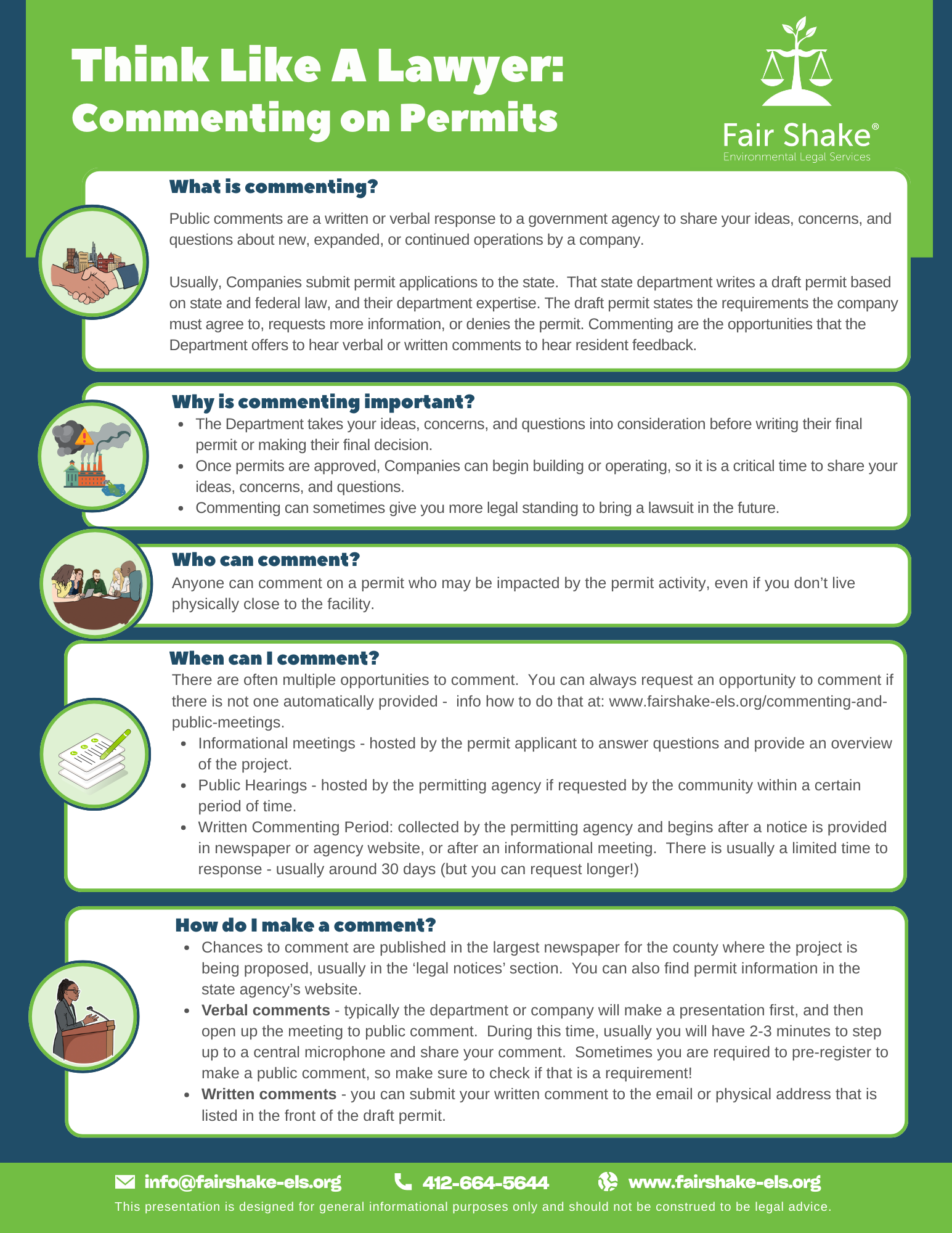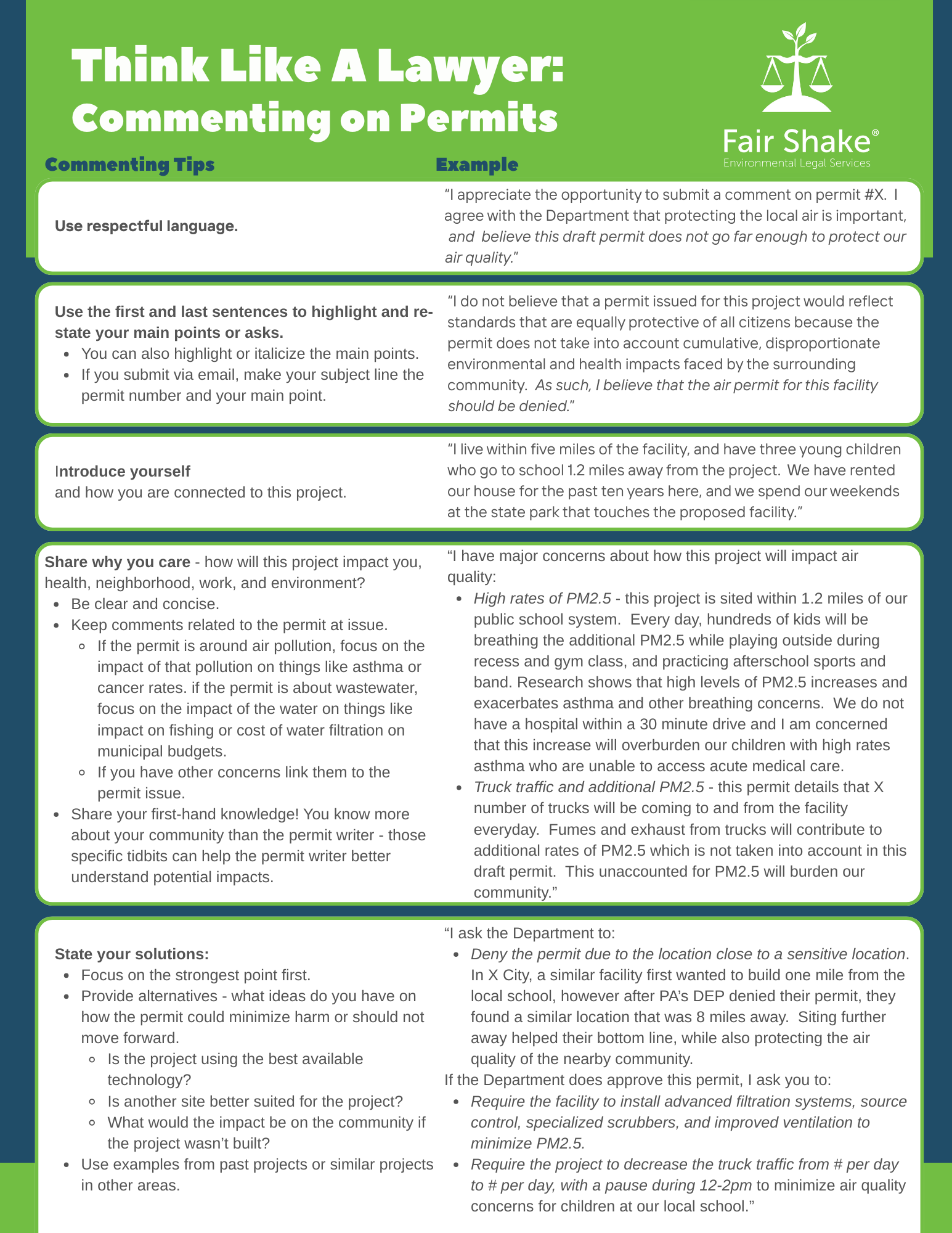commenting and
public participation
requesting public meetings and/or
a longer commenting periods
A public meeting can bring community together to express their opinions, hear a speaker or plan, learn together about a topic, or work together to develop a solution.
Check it out! What to Expect During a Public Hearing
Sometimes public meetings are required for different approvals, but sometimes they may not be.
Requesting a meeting and/or longer commenting periods can make sure that everyone in community understands the project and has the chance to voice their concerns.
Common Questions
Residents have lots of questions when new developments are being proposed in their community. Asking questions and building a community “Frequently-Asked-Questions” bank can help you understand what the Company is trying to do, and the impact it may have on your neighborhood and community.
Here are some common questions that other communities have. Everyone deserves transparency and to get your questions answered!
commenting on environmental permits
Public comments are a comment to an agency to provide feedback to a proposed rule, regulation, or permit application under consideration.
Commenting can help provide your facts and perspectives to decision-makers before they make a decision.
Commenting may stop a project or provide changes to the permit. By submitting a comment, you can:
Provide additional information;
Give the chance to make your voice heard; and
Ensure that the approving agency is aware of all pertinent concerns.
In many situations, the agency may be required to respond to all comments.
Comments are the strongest when people make strong, personal, unique, or technical comments. Form letters, postcards, and petitions do not always have the strongest impact.
-
How to Write Successful Public Comments Webinar: https://youtu.be/dBbDAZH3OHk
Ohio Environmental Council Public Advocacy Toolkit: https://theoec.org/wp-content/uploads/2022/08/AdvocacyToolkitOnly_Updated082022.pdf
Step by Step Tips for Writing Effective Public Comments: http://eli-ocean.org/wp-content/blogs.dir/2/files/Written-Commenting.pdf
Public Written Comment Templates: https://publiccommentproject.org/comment-templates
Step-by-Step tips for Providing Effective Verbal Comments: https://www.eli.org/sites/default/files/files-pdf/Verbal-Commenting_1.pdf
A Citizen’s Guide to Fracking Permits in West Virginia: https://wvrivers.org/wp-content/uploads/2017/03/WV-Rivers-Citizens-Guide-to-Fracking.pdf















